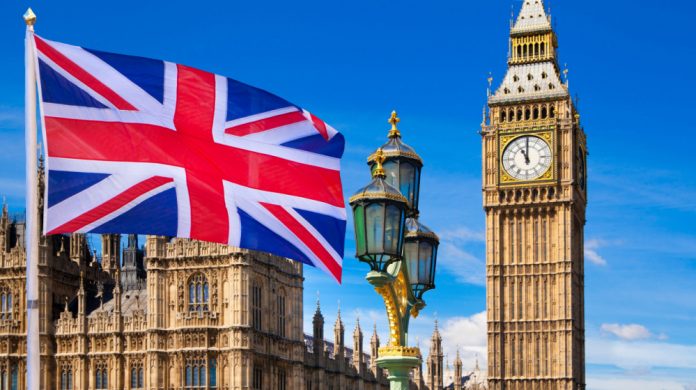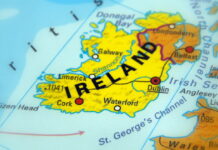The Betting and Gaming Council is calling for “balanced regulations and stable taxation” to combat the illegal gambling market.
It follows a new report which has estimated that 1.5 million members of the British public wager almost £4.3bn on the illegal market every year.
The report, published by consulting firm Frontier Economics and titled ‘The size and economic costs of black market gambling in Great Britain’, was commissioned by the BGC and is described as the “first major study on the black market since the publication of the previous government’s white paper on gambling reform”.
More than 6,000 people were surveyed for the report to “understand whether and how people are accessing black market gambling”, with the scale of the survey allowing for the examination of “information about awareness, behaviours and perceptions by important player demographics and different types of product”.
To gain the most in-depth results, the survey took a nationally representative panel of the population to help capture players who are “already fully converted to unregulated play” and combined it with a player sample provided by operators broken into different spend groups to see “different behaviours for heavier and lighter gamblers”.
Estimated £2.7bn wagered on online illegal sites
Breaking down the overall calculated figure, the BGC estimated that £2.7bn is being wagered online on illegal sites, while up to a further £1.6bn may be being staked in person at illegal gambling dens.
The £2.7bn estimate for online gambling is divided as follows: £262m is attributed to players who exclusively use black market online operators, £433m comes from those who only gamble via social media or messaging platforms such as WhatsApp, while the remaining £2bn is contributed by players who split their gambling activities between black market and UK-regulated operators.
Furthermore, the research underscores that black market gambling maintains an accounted long-tail of unregulated operators that are hard to capture for estimates, understating the size of the illegal market and the threat it presents as a result.
According to the council, illegal operators are “aggressively targeting UK customers, significantly undermining player protections, while sucking millions from sport and the Treasury”.
Grainne Hurst, CEO of the BGC, commented: “This shocking report exposes the unnerving true scale of the growing, unsafe, unregulated gambling black market.
“From online gaming, to betting on sports like horse racing, millions of customers are being driven into the arms of pernicious black market operators. These people don’t care about player safety, don’t want to pay their fair share to support sport and don’t pay a penny in tax.
“By failing to adhere to the stringent standards set by the Gambling Commission, unregulated operators in the unsafe black market can make bigger offers, grant customers total anonymity and promise the freedom to gamble without any controls or safety measures, unlike BGC members.
“Worst of all, these sites are making a mockery of the rules set up to protect the most vulnerable by aggressively advertising their services to those who have self-excluded.”
The research revealed that more than one in five 18 to 24-year-olds are betting on the online illegal market via secure online messaging apps. Off-shore websites are also aggressively targeting people who have self-excluded from regulated betting operators.
According to the report, one in six respondents (15%) knew of at least one unregulated online gambling brand, which is the equivalent of around 2.8 million people. Sponsorship is one of the main drivers for illegal operator awareness as well (13%), second only behind social media adverts (22%).
The report also stated illegal operators are also able to offer “attractive features” that are not available to UK-regulated operators.
Respondents surveyed said the top five reasons for using an unregulated operator include better bonuses/free bets (34.5% of respondents), ease of setting up an account (32.3%), anonymity (30.9%), more flexible payment options, as well as better odds (both at 29.6%).
Survey respondents also highlighted options which regulated operators don’t offer including avoiding deposit limits (25.1%), being able to bet more money (22%) and avoiding self-exclusion measures (17.5%).
Many illegal operators and affiliate websites also openly promote their “non-GAMSTOP” status to appeal to those seeking alternatives to regulated platforms, specifically targeting players who have self-excluded to control or prevent themselves from experiencing gambling-related harm.
The report mentioned that one in 12 (8.1%) players are using illegal gambling sites or social media/messaging apps for some or all of their online gambling, equivalent to 1.5 million people. Many more are also using VPNs to access gambling websites.
‘Balanced regulations and stable taxation’ needed
The BGC stated that illegal sites promote crypto gambling and gambling with credit cards, even mimicking regulated sites to the point that 54% of respondents were unaware that they were using an unregulated operator.
In addition, the research noted that vast amounts being wagered on the illegal market, online and offline, “could deprive the Treasury of up to £335m over the course of a five-year Parliament” if no action is taken.
The council has called for “balanced regulations and stable taxation” as the best form of defence to combat the illegal market.
Hurst continued: “The Government and the regulator risk sleepwalking into this issue. Simply giving the GC more powers and more resources to tackle the black market won’t, in itself, work. Enforcement is only part of the solution.
“The fact is onerous and ill-judged regulations drive customers from the regulated sector to the unsafe, unregulated gambling black market.
“Proposals by anti-gambling prohibitionists like advertising bans or intrusive, blanket, low level affordability checks will not protect customers, in fact they will give another leg up to unscrupulous black market operators, the last thing anyone wants.
“Every comparable market in the world tells us the same thing. The best defence against this growing illegal, gambling black market is getting the balance of regulations right.”
Andrew Leicester, Associate Director at Frontier Economics and one of the report’s authors, added: “This report shows that most gambling today is done through regulated, visible channels. That is good news.
“But there are warning signs. The landscape is evolving quickly in ways that suggest black market gambling is getting easier to find and access.
“This report provides timely new evidence on the scale of the black market. Efforts to make gambling safer are important, but must avoid the risk of simply pushing more players and spend into unregulated providers who do not need to comply with regulations around safer play.”
To read the full ‘The size and economic costs of black market gambling in Great Britain’ report by Frontier Economics, click here.









